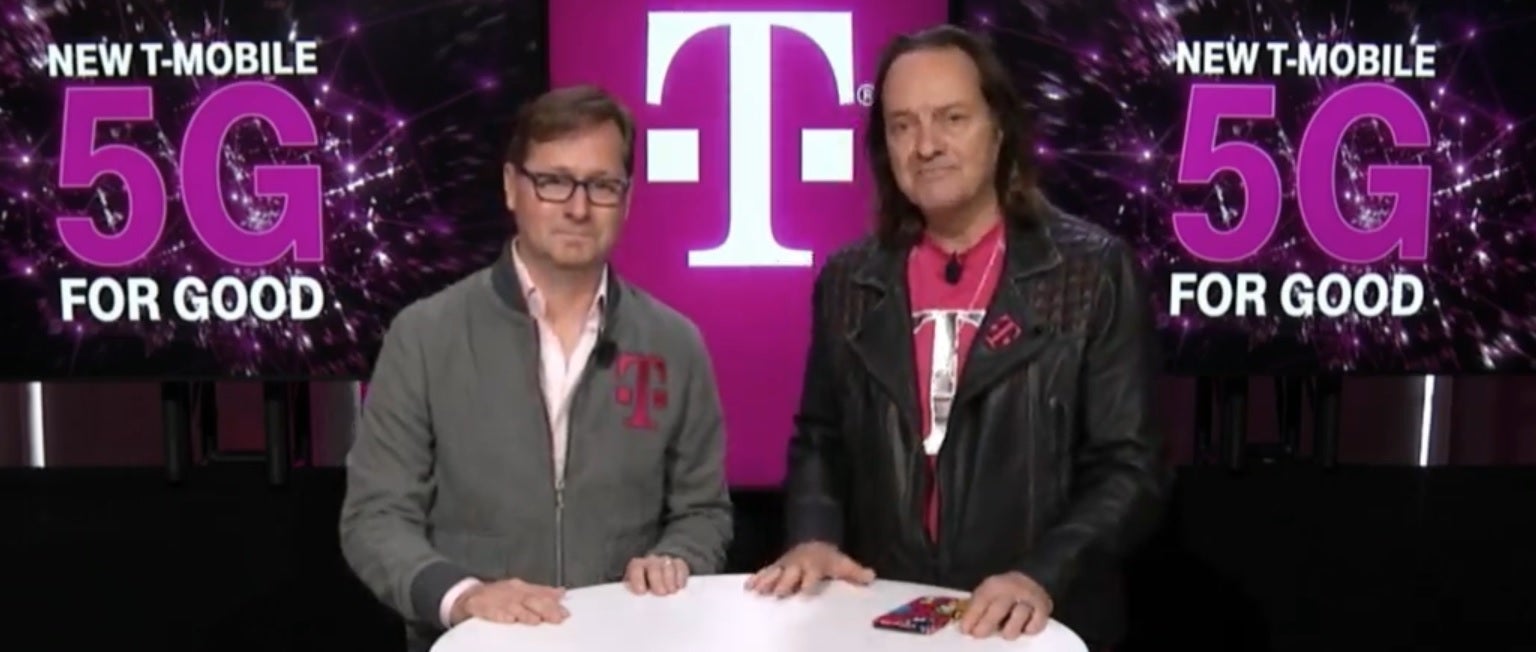Fate of the T-Mobile-Sprint merger rests on a trial that begins tomorrow

Tomorrow, December 9th, a trial begins in a Manhattan courtroom that will determine the fate of the T-Mobile and Sprint merger. 13 state attorneys general and the AG of Washington D.C. are seeking to block the $26.5 billion deal that was first announced on April 29th, 2018. The state attorneys general are concerned that the transaction is anti-competitive because it reduces the number of major U.S. carries by 25% to three from four. The plaintiffs don't believe that the deal in place between T-Mobile, Sprint and Dish Network that turns the latter into a "fourth nationwide facilities-based network competitor," will keep competition at the level where it currently stands.
If T-Mobile and Sprint close on the merger, Dish will pay $5 billion for Sprint's prepaid businesses including Boost Mobile and Virgin Mobile; Boost itself has 9.3 million customers. Dish will also get 14MHz of 800MHz spectrum from Sprint and 7,500 retail locations. In addition, the carrier will sign an MVNO agreement with T-Mobile allowing it to offer wireless service to consumers even as it builds out a standalone 5G network. And while this was good enough for the Justice Department, it does not placate the 13 state attorneys general that remain in the lawsuit. CNBC reports that the plaintiffs will argue in court that the deal with Dish Network will not be enough to make up for Sprint's departure. This makes us wonder whether the plaintiffs know what is going on in the U.S. wireless industry. Even Sprint's deep-pocketed parent SoftBank has pretty much given up on the company.
The merger has always been about T-Mobile getting its hands on Sprint's 2.5GHz mid-range spectrum
The state attorneys general might bring up the Justice Department's decision back in 2011 to put the kibosh on AT&T's $39 billion acquisition of T-Mobile, which would have created the largest U.S. wireless provider at the time. The DOJ arguments against the deal resonate with the plaintiffs today, including the drop from four major wireless operators to three. But T-Mobile and Sprint will explain to the court the changes in the industry that have taken place over the last eight years.

T-Mobile has already launched the first nationwide 5G network in the U.S.
The transition from 4G LTE to faster 5G data speeds is also expected to be brought up during the trial as T-Mobile and Sprint explain that the merger will allow the former to build a broader, more complete 5G network that will be better positioned to deliver faster 5G data speeds to rural Americans. The combination of T-Mobile's low-band 600MHz spectrum and Sprint's mid-band 2.5GHz spectrum will provide two-thirds of Americans with download data speeds of more than 100Mbps by 2021, rising to 90% by 2024.
The deal has always been about T-Mobile taking control of Sprint's mid-band spectrum. The first nationwide 5G network in the states was launched by T-Mobile this past week using the 600MHz low-band spectrum it spent nearly $8 billion to acquire during a 2017 FCC auction. These airwaves travel farther and penetrate buildings better than other airwaves, but do not deliver the fastest data speeds or have the capacity to handle heavy 5G traffic. This is where T-Mobile's mmWave spectrum will come into play with help from Sprint's mid-band signals. Mid-band spectrum is a rarity in the U.S. and if the merger is blocked, T-Mobile could ask the FCC to auction off some spectrum in the 3.7GHz to 4.2GHz range.

T-Mobile and Sprint announced the merger on April 29th, 2018
If the court rules against T-Mobile and Sprint, some expect other companies to make a play for Sprint or T-Mobile independently. Ironically, Dish Network is one of the names that come up as a potential bidder as does Altice USA, the nation's fourth-largest cable outfit.
New Street Research analyst Blair Levin sees a victory ahead for T-Mobile and Sprint. "While we see the odds as close, our current view [is] that the states are more likely than not to win, particularly due to weaknesses we see in the companies’ market definition, reliance on economic arguments with little support in antitrust precedent, a reliance on behavioral remedies to justify the fix, and a reliance on public interest considerations, such as social or industrial policy, that generally are considered irrelevant to competition analysis, "Levin wrote to clients. “Having said that, we could see the Judge accepting a number of arguments from the companies and ultimately ruling their way, including by fashioning his own remedies."













Things that are NOT allowed: